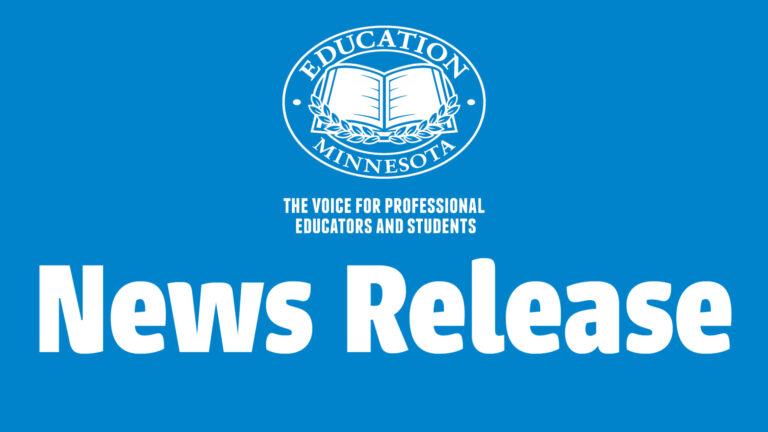Governor commits to ‘Due North’ education agenda with bold budget
For more information, contact:
CHRIS WILLIAMS
651-292-4816 (work)
651-247-5539 (cell)
ST. PAUL, Minnesota. Jan. 26, 2021 – Gov. Tim Walz and Lt. Gov. Peggy Flanagan pledged Tuesday to spend the money necessary to help students catch up from COVID-19 disruptions and transform public education so Minnesota schools will better serve the needs of all students, no matter where they live or what they look like.
Gov. Walz presented a budget Tuesday that would raise about $2 billion in new revenue from the wealthiest Minnesotans and the largest corporations. His budget proposal includes $745 million in new state education spending, in addition to $649 million in federal money, to pay for the education agenda, called “Due North,” which was released Monday.
“Public schools should empower all students to pursue their dreams, with no exceptions. We’re not meeting that goal right now for many of our students of color, but this budget is a big step in the right direction,” said Denise Specht, president of Education Minnesota. “It’s only fair for the richest 1 percent to pay 1 percent more to fund the futures of Minnesota’s students.”
“Our union shares many of the goals and priorities of the governor’s budget,” Specht said. “We’re looking forward to working with the members of the House and Senate who care about the future of Minnesota to pass this budget into law.”
When it comes to education spending, the union of more than 86,000 educators has gone on record supporting the full funding of public education, recruiting and retraining more educators of color, increasing supports for the mental and physical health of students and expanding learning opportunities so students can bounce-back from learning disruptions caused by the pandemic.
The governor’s budget proposal increases the main funding formula and stops the growth of the special education cross-subsidy; it increases funding for counselors, social workers and mental health professionals; it invests in diversifying the teacher workforce; and provides money for expanded optional summer school and other extended-time programs, which may be locally designed.
“The students of Minnesota need the adults who care about them to come together and overcome decades of underfunding of public education and confront the racial issues that have haunted schools and other Minnesota institutions for many years,” Specht said. “Of course, a single two-year budget won’t resolve all the issues, but that’s no reason to wait even one more day to get started.”
About Education Minnesota
Education Minnesota is the voice for professional educators and students. Education Minnesota’s members include teachers and education support professionals in Minnesota’s public school districts, faculty members at Minnesota’s community and technical colleges and University of Minnesota campuses in Duluth and Crookston, retired educators and student teachers. Education Minnesota is affiliated with the American Federation of Teachers, National Education Association and AFL-CIO.



